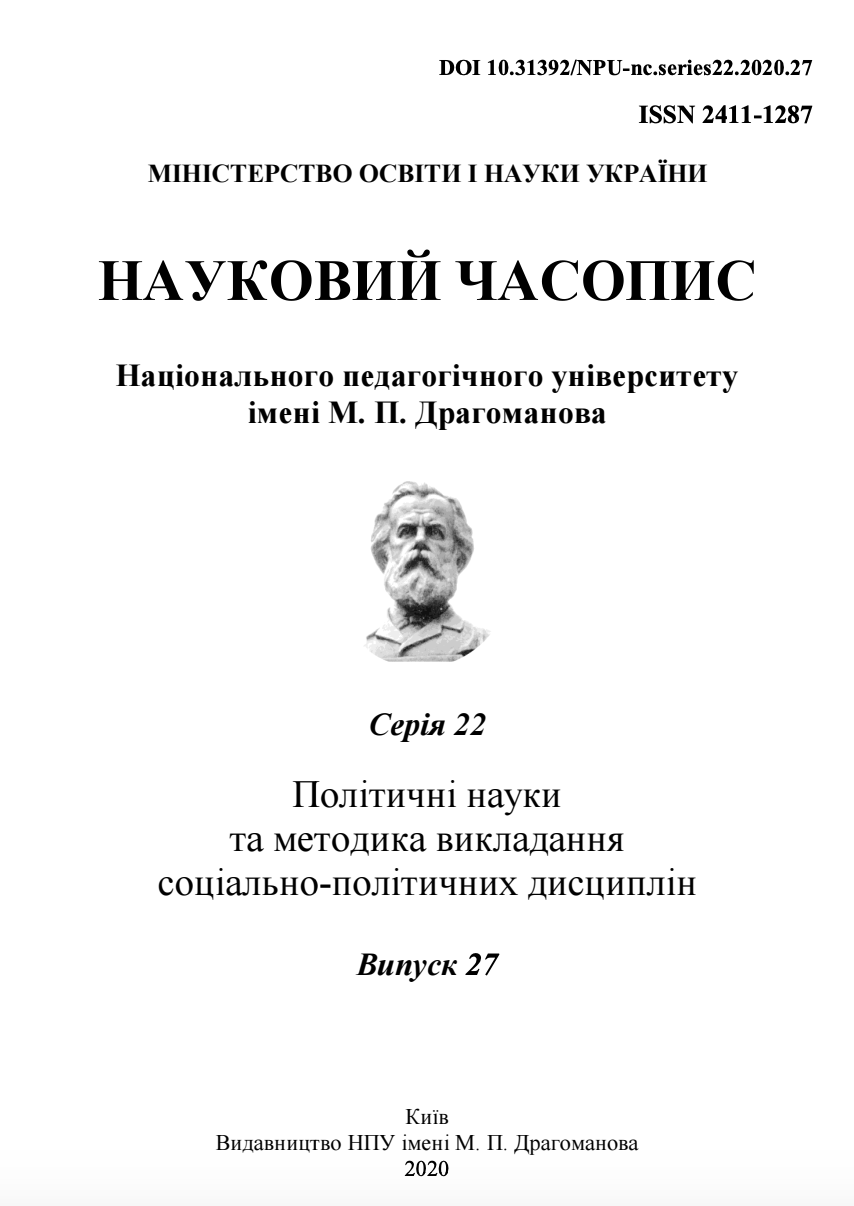ЕТАПИ ПОЛІТИЧНОЇ ТРАНСФОРМАЦІЇ МОНАРХІЙ
Keywords:
political modernization, political transformation, control function of parliament, zero constitutionalism, fake constitutionalism, surreal constitutionalism, real constitutionalismAbstract
The article deals with the concept of «political transformation» in the context of changing the relationship nature between the high bodies of state power, clarifies it’s relation with the concept of «political modernization» and identifies the key features of their difference. Proposed to reveal the nature of monarchies political transformation through the prism of revealing parliamentary control forms such as deputy’s interpellation, giving a vote of confidence to the government, expressing a vote of no confidence to the government, parliamentary inquiry over the executive power, following the constitutional practices example of Bahrain, Belgium, Eswatini, Jordan, United Arab Emirates, Saudi Arabia. Assesses their implementation in relations with the government, based on legally prescribed conditions of such relations and specific political practices. Depends on this set and describes the stages of monarchies political transformation such as «zero constitutionalism», «fake constitutionalism», «surreal constitutionalism», «real constitutionalism» and justifies the existence of intermediate stages in the context of the transition from one stage to another following the constitutional practice of Jordan and United Arab Emirates. A model of upward political transformation «zero constitutionalism-fake constitutionalism-surreal constitutionalism» is proposed. The stage of surreal constitutionalism is viewed in the context of a downward political transformation, as exemplified by Eswatini's constitutional and political practice. Explains the importance of revealing a stage of political transformation in which an exact monarchy is situated in order to understand the political processes taking place in it and to sum up the level of the monarchy institution stability.

